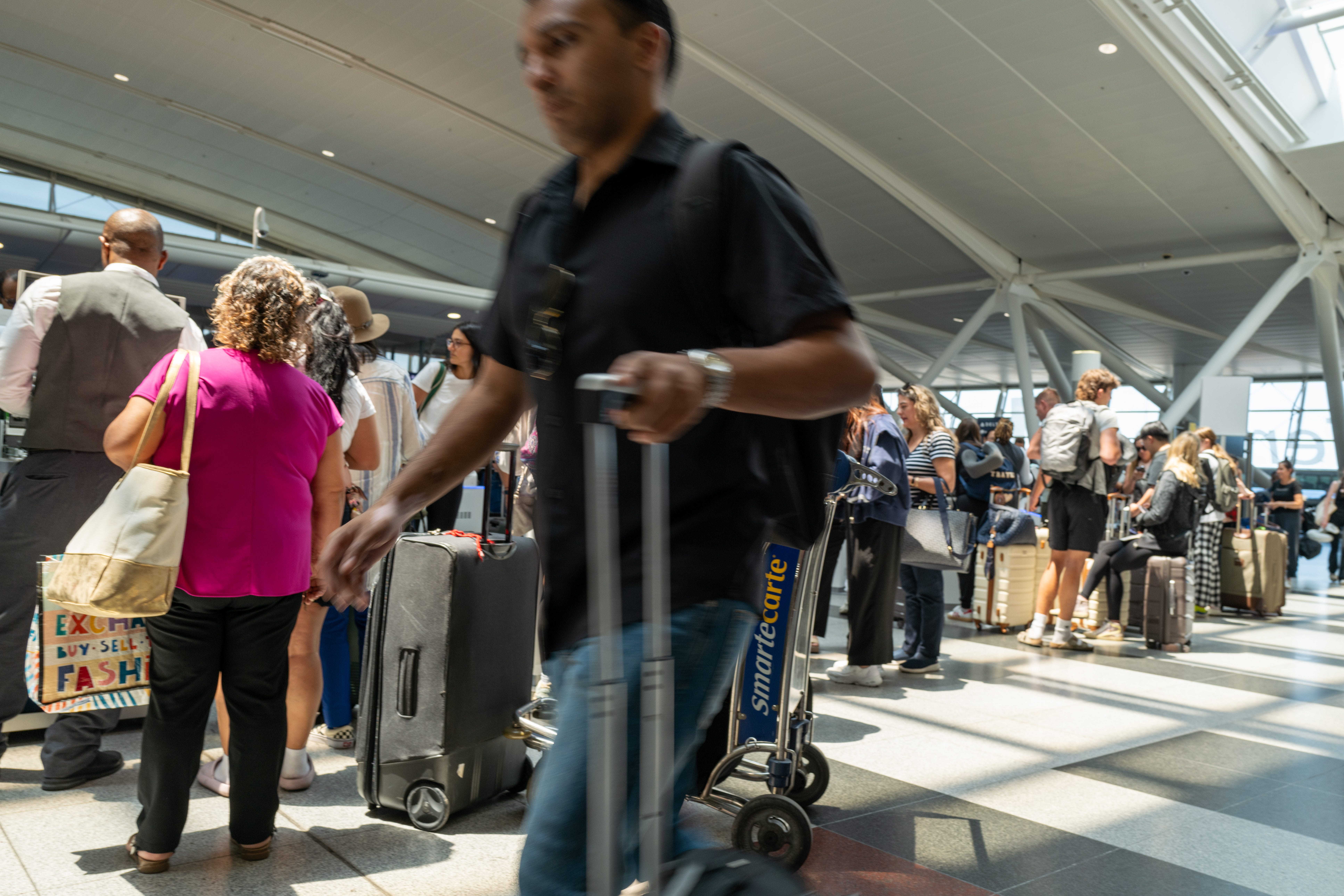New Rules, Bigger Crowds And Soaring Temps: How To Survive Your 2025 European Vacation

- Americans traveling to the UK now need an Electronic Travel Authorization (ETA).
- Passports must have at least six months validity remaining for entry into many European countries.
- European travel is expected to remain popular this summer, potentially increasing crowds.
- Travelers should prepare for hot weather and consider booking activities during cooler times of day.
According to the European Travel Commission, 37% of U.S. travelers plan to take a European vacation in 2025. I’m one of them, heading off on a Mediterranean cruise this summer with family friends to celebrate our teens' high school graduations. It’s been a minute since I’ve been to Europe, and there’s obviously a lot going on in the world these days. So, I reached out to some experts to find out what American families need to know if they’re going to Europe this summer.
All American travelers now need an Electronic Travel Authorization (ETA) to enter the United Kingdom. It’s not hard to do: You fill out an online form and pay a £16 (about $21.43) fee. But you have to do it in advance of arrival. “It does take about three days for the application to get processed,” says Sally French, travel expert at NerdWallet and co-host of the Smart Travel podcast. “So that is what matters the most about it.”
The new European Travel Information and Authorization System (ETIAS), originally set to launch in 2025, has now been delayed until 2026. So, while you don’t have to worry about it this year, Americans traveling to Europe starting in the last quarter of 2026 will need to apply for an ETIAS authorization before travel.
This isn’t anything new. But it’s something that continues to trip up travelers. “Please check the expiration dates on your passports,” says Melanie Fish, travel expert for Expedia Group. “There are several countries that just will not even let you enter if your passport is within six months of expiring. Every single year I know someone who gets to the airport and is turned away because their passport is still valid, but it’s going to expire in a couple of months and they can’t get on the plane.” Many European countries adhere to this policy.
BEST OF EUROPE: 11 best places to go in Europe for a family vacation
Because people tend to book international trips well in advance, any economic concerns that have developed recently among American travelers probably won’t have a big impact on summer travel to Europe. “We are still generally seeing a lot of demand,” says French. “In 2024, we saw tourism in the EU exceed the 2023 record by about 2%. It’s this ongoing amount of growth, and we generally expect that to still be the case.”
A decrease in travel to the U.S. by international visitors in response to recent moves by the Trump Administration could also lead to increased crowds in Europe. “When people are thinking of alternative places to spend their holiday that are not the U.S., perhaps Western Europe goes higher up on the list,” says Sarah Kopit, editor-in-chief of travel industry news and market research company Skift.
If you’re trying to check off some bucket-list sights, expect crowds. But you can balance that by taking detours throughout your trip to less popular spots. “Tourist attractions are called tourist attractions because they attract tourists, and they attract tourists because they’re amazing,” says Fish. “We want to go to Paris and see the sights. But then maybe we want to spend a couple of days in Champagne country and take a detour to towns outside the city.”
Over-tourism fees could continue popping up to try to counteract crowds, but the collection and enforcement of these fees can sometimes be confusing. “The Internet is your friend here,” says Fish. “None of these over-tourism fees are prohibitive to taking a trip to Europe, but they are fees you need to be aware of. For that reason, I would do a little bit of studying before I go, because I don’t want someone telling me there’s a fee that’s not real. I want to know what’s actually required of me.”
The last few summers in Europe have been scorchers, and this summer will likely bring more of the same. “There’s no reason to think that 2025 won’t be hotter than 2024,” says Kopit. “And Europe, unlike other countries that have been dealing with extreme heat for quite some time, doesn’t have a lot of its infrastructure set up with air-conditioning that some other places, including the U.S., do.”
So if AC is a must, check that any hotels you book have it. And be smart about planning your sightseeing. “Book tickets in advance for those things you know you’re going to want to see, and book them for first thing in the morning or later in the evening to skip the heat,” says Fish. “And don’t overpack your day. If you don’t build in frequent gelato breaks during your days wandering around Florence, you’re doing it wrong.”
SKIP THE LINES: Europe without the crowds? Travelers say these are the best crowd-free spots
We’ve been bombarded with news every day lately here in the U.S., and many of those headlines are already having or could have impacts on international travel. “Being informed, more than ever before, is very important right now,” says Tania Swasbrook, co-founder of luxury travel firm Vgari Lifestyle, a Virtuoso Agency. “Be active, not passive. Be active in researching information. Be active in protecting yourself and your family, not just being ‘Off we go.’”
She recommends having backup plans for everything from your flights to your daily travel itinerary. “Download as many apps as you can,” she says. “Have the airline app of the airline you’re traveling on, not just the one you booked it on. You could have booked on American, but British Airways is operating the flight. You have to be in the know — or have a travel advisor.”
Folks living outside the U.S. may have opinions about recent doings by the Trump Administration. But that’s not expected to translate to how Europeans view American travelers at this point. “I can say with confidence that my friends overseas are not confusing American tourists with anything they’re reading in the news about the American government,” says Fish. “It’s always true that locals are excited to welcome visitors who are respectful and curious.”
The usual words of wisdom about international travel still apply today. “Be respectful of other people’s cultures,” says Kopit. “Know where you’re going and what the norms are, and be respectful when you’re a guest in someone else’s country.”
What Americans need to know before visiting Europe this summer originally appeared on FamilyVacationist.com.
The views and opinions expressed in this column are the author’s and do not necessarily reflect those of USA TODAY. FamilyVacationist.com and TourScoop.com are owned and operated by Vacationist Media LLC. Using the FamilyVacationist travel recommendation methodology, we review and select family vacation ideas, family vacation spots, all-inclusive family resorts, and classic family vacations for all ages. TourScoop covers guided group tours and tour operators, tour operator reviews, tour itinerary reviews and travel gear recommendations. If you buy an item through a link in our content, we may earn a commission.


